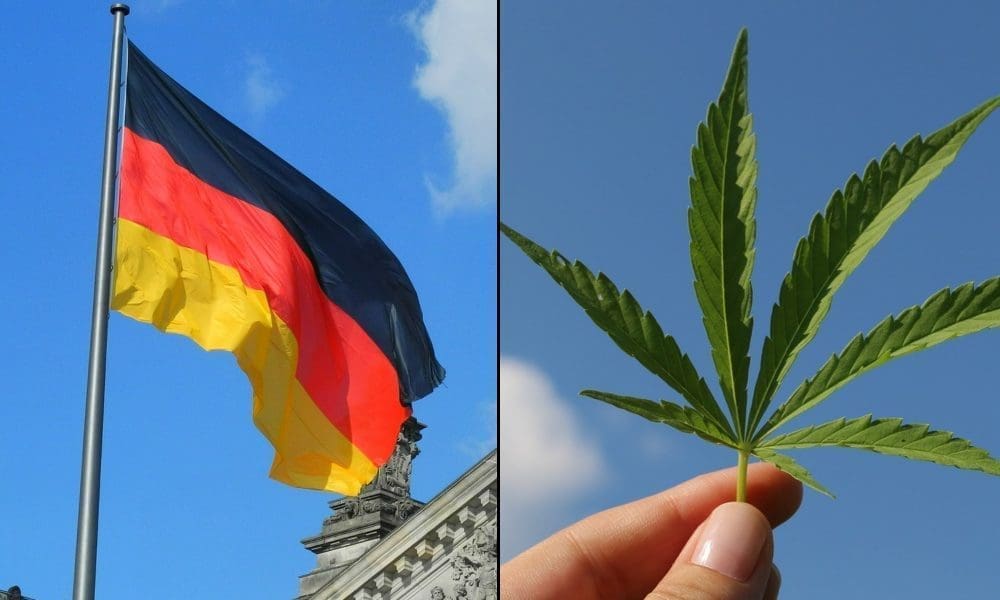“Despite significant and stable market growth, certain proposed policy changes that have been drafted may hinder industry progress and restrict patient access.”
By Niklas Kouparanis, Bloomwell Group
A new threat looms over the burgeoning medical cannabis market in Germany.
Recently, the German Health Ministry released a draft amendment that would require patients to have an in-person consultation annually and would bar prescriptions from being delivered by mail. While this is a draft and is likely to be changed during the legislative process, many are questioning the potential effects of policies like these on an otherwise growing and stable market.
Will this stall or even curtail future success?
Where the German medical cannabis market currently stands
Since the passage of the Cannabis Act (CanG) in April 2024, Germany has experienced significant growth in the country’s medical cannabis market due to cannabis being reclassified cannabis as a non-narcotic. This removed unnecessary administrative burdens on the medical cannabis market and allowed more patients to access the plant as a wellness treatment.
Prior to CanG being implemented last year, there were an estimated 200,000 to 300,000 medical cannabis patients in the German market. As of May 2025—just over one year after CanG went into effect—Whitney Economics estimates that there are now an additional 500,000 to 600,000 patients participating in the legalized self-paying market.
I predict that we could soon see a million patients if the market can grow under its current regulatory conditions.
As reported by the Federal Institute for Drugs and Medical Devices (BfArM), Germany imported over 37.223 metric tonnes of medical cannabis products in the first quarter of 2025. This number represents a noteworthy increase as the total imports for Q1 2025 increased by roughly 14.8 percent compared to the Q4 2024 total (32.419 metric tonnes). Compared to the same period a year prior, the Q1 2025 import numbers represent an increase of over 457 percent.
Proposed changes seek to put patient access at risk
Despite significant and stable market growth, certain proposed policy changes that have been drafted may hinder industry progress and restrict patient access.
In July 2025, the German Health Ministry released a draft amendment that would require patients to have an in-person consultation at a physician’s office or during a home visit once a year to be prescribed medical cannabis and also as a first step before starting their therapy.
In addition, medical cannabis treatments would no longer be able to be delivered by mail order. Patients would have to pick up their treatments at physical pharmacy locations.
Such legislative changes to current German cannabis law are led under the direction of Federal Health Minister Nina Warken, who is seeking to restrict patient access to medical cannabis. Warken has emphasized that record-high cannabis imports have increased beyond what was anticipated.
Report Reveals Digital Access Restrictions Would Push Patients to Illicit Market
According to German medical cannabis company Bloomwell Group’s latest report, “The Cannabis Barometer–Potential Consequences of Restricted Telemedicine Access,” which surveyed 2,500 medical cannabis patients in Germany, 41.7 percent of patients would revert to the illicit market if digital access were blocked.
Such findings suggest that digital access to licensed, physician-supervised cannabis therapy has successfully transitioned hundreds of thousands of patients away from unsafe, unregulated sources and into safe, pharmacy-distributed care.
Additionally, Bloomwell found that medical cannabis patient numbers show no signs of slowing down: In May and June 2025, the number of prescriptions filled on the company’s digital platform exceeded those from March 2024—the final month before medical cannabis was reclassified—by more than 1,100 percent, a new record high.
Other key findings from the Cannabis Barometer report included:
- Only 7 percent would consider joining one of Germany’s legal cannabis clubs, which mainly serve recreational users.
- Seventy-nine percent of patients previously relied on unlicensed sources (illegal market and/or through friends and acquaintances) before accessing digital therapy.
- Forty-seven and a half percent now say cannabis obtained from pharmacies is less expensive than unlicensed products, debunking myths about affordability. Only 13.8 percent responded that pharmacy cannabis is more expensive.
- Eighty-three percent believe medical cannabis from pharmacies is of higher quality than illicit alternatives.
Public and safety benefits of digital access
As mentioned, the passage of CanG allowed for further patient access to the legalized medical cannabis system. Such access prompted some individuals to shift from the illicit market to the regulated medical system, as they could now access prescribing physicians and treatments through digital platforms—signaling a significant harm reduction and an overall win for major public health.
Restricting digital access not only reverses this trend but also reintroduces substantial risks associated with unlicensed products, such as contamination, mislabeling and improper packaging that isn’t child-resistant.
Overlooked by critics of the legalized telemedical cannabis industry is that digital consultations for patients still involve licensed prescribing physicians, helping to ensure proper oversight and usage. Removing this channel simply undermines patient access without any apparent benefit.
Access equality for disabled and rural populations
Medical cannabis treatment is often prescribed to patients experiencing conditions that can vary in severity and may limit their mobility. Patients with chronic conditions, immunocompromised and disabilities can find it extremely difficult to travel to physicians’ offices for in-person consultations. The same issue applies to Germans living in rural areas.
These patients depend on digital consultations and mail-in orders to treat their medical conditions. Also, since there are a limited number of doctors in Germany who prescribe medical cannabis, many of these patients may be left without access and may have to turn to the illicit market.
Economic impact of restriction of access
The proposed policy changes not only pose harm to patients but also hinder the market’s growth. The German medical cannabis industry has demonstrated significant and stable development, generating job opportunities, tax revenue and investment opportunities. Regressive policies could slow or upend progress.
As mentioned in the Cannabis Barometer report, 41.7 percent of German medical cannabis patients stated that they would seek cannabis through illicit sources if their digital access were restricted. If that is the case, a large portion of economic activity would shift from regulated, taxable sales to the illicit market.
While we continue to consider these points, it’s important to remember that we are still at the beginning of the policy process and are hopeful that these changes are unlikely to be implemented. The German market will continue to thrive.
Niklas Kouparanis is CEO and co-founder of Bloomwell Group. Since 2017, he’s been a serial entrepreneur, medical cannabis pioneer, founder and growth activator of companies, all while shaping the future of the European cannabis industry.


























































